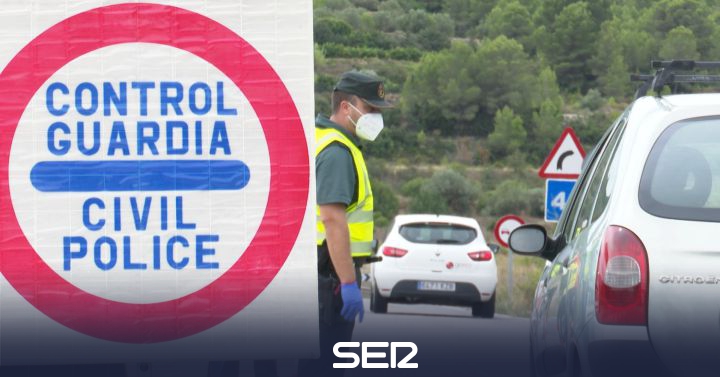Before Polina Reutova had herself injected with the experimental Russian corona vaccine, she had her doubts because of the possible health dangers. But her doubts faded when Vladimir Putin said on television that one of his own daughters had been vaccinated with the national vaccine. “I can’t imagine she would have herself injected with a dubious drug that doesn’t work,” Reutova says.
The Moscow hockey coach is one of 40,000 Russians who are voluntarily injected with Sputnik V, the world’s first registered corona vaccine. If this latest research phase yields positive results, Russia will start a nationwide vaccination program on January 1.
“Thank goodness I haven’t gotten sick since the start of the pandemic and I want to keep it that way,” Reutova says over the phone. ‘That’s why I got vaccinated. And to ensure that the vaccine is quickly available to the rest of the world, of course. ‘
A week after the first of two vaccinations, she feels great. She reports her body temperature and condition every day via an app. “Maybe I got a placebo, but my gut still says I got the vaccine.”

A quarter of the volunteers receive a placebo. The rest will receive Sputnik V via two injections, which consists of a two-fold virus of cold viruses, which have been genetically modified to look a bit like the new corona virus.
While the testing phase is still in full swing, the Kremlin is already eagerly seeking international recognition for the vaccine. Syrian President Assad and Belarusian leader Lukashenko – both heavily dependent on support from Russia – have stated in interviews with Russian state media that they are looking forward to the vaccine from Moscow. The son of the Venezuelan leader Maduro and the Belarusian prime minister are already being injected, they say. The vaccine is not called Sputnik V for nothing: a reference to the Sputnik satellite with which the Soviet Union trumped the rest of the world in 1957.
Yevgeni, fighter jet pilot and test subject, understands the pride of his government. “Americans would also shout it from the rooftops if they were the first to have a vaccine.” A week after his first injection, he also says he has had no complaints. “I feel even better than before the injection.”
Western countries react more cautiously. The speed at which the Russian vaccine is developing is causing suspicion about its safety and effectiveness. A group of international scientists studied a publication in the renowned medical journal The Lancet about Sputnik V and concluded that the Russian data is forged.
But the Russian scientists behind the vaccine defend their research results, saying that “wartime” simply requires a fast pace. About four hundred people at risk have already been vaccinated, according to the Ministry of Health.
They hope to protect themselves from the second wave of viruses that engulfs Russia. On Sunday, Russia (1.3 million infections) registered 13,643 new cases, the largest increase since the start of the pandemic. The Moscow City Council has extended the autumn holidays for students by a week, but cafes and restaurants were packed last weekend – the city knows that small and medium-sized businesses are on the brink of collapse after the hard lockdown earlier this year, if not already bankrupt.

Putin himself has not yet been vaccinated, despite his concerns of becoming infected: everyone he meets must first go to quarantine for two weeks and then also go through a special decontamination tunnel. According to his spokesman, it is too early for the president to be vaccinated because of “special precautions for the head of state.”
Most Russians also prefer not to risk Sputnik V. According to a poll, three quarters of Russians do not intend to get vaccinated. More than half of the respondents in another poll say they do not trust a substance from their own country by definition.
Finding volunteers is therefore not that easy. Government agencies and state-owned companies are sending workers to clinics to get vaccinated. Sometimes they offer a bonus. ‘I have been offered 30 thousand rubles (330 euros, red.) ‘, says an employee of the City Property Department at the Moscow municipality who wishes to remain anonymous. ‘But I’m not a guinea pig. It is not at all certain that the vaccine is safe. ‘
An employee of the Moscow metro also says that she and her colleagues have been offered a bonus for participating. But she doesn’t know anyone who has responded to that. “No kamikaze scenes with us.”
Serious complaints after vaccination are not known. Should they occur, the Russian government promises compensation. If a volunteer dies from the effects of the vaccine, 22 thousand euros will be paid.
However, about one-seventh of the subjects does seem to get temporary complaints, Russia’s minister of health said in an interview. This includes fever, fatigue and headache. This is not uncommon after vaccinations.
Some test subjects who keep a diary with their experiences on Instagram confirm these complaints. Ekaterina, a biologist who had herself vaccinated with her husband, has a few days of headache to contribute to the search for a vaccine. “I don’t care which country is the first to find a working vaccine,” she says. “As long as this coronavirus nightmare ends as soon as possible.”
–


